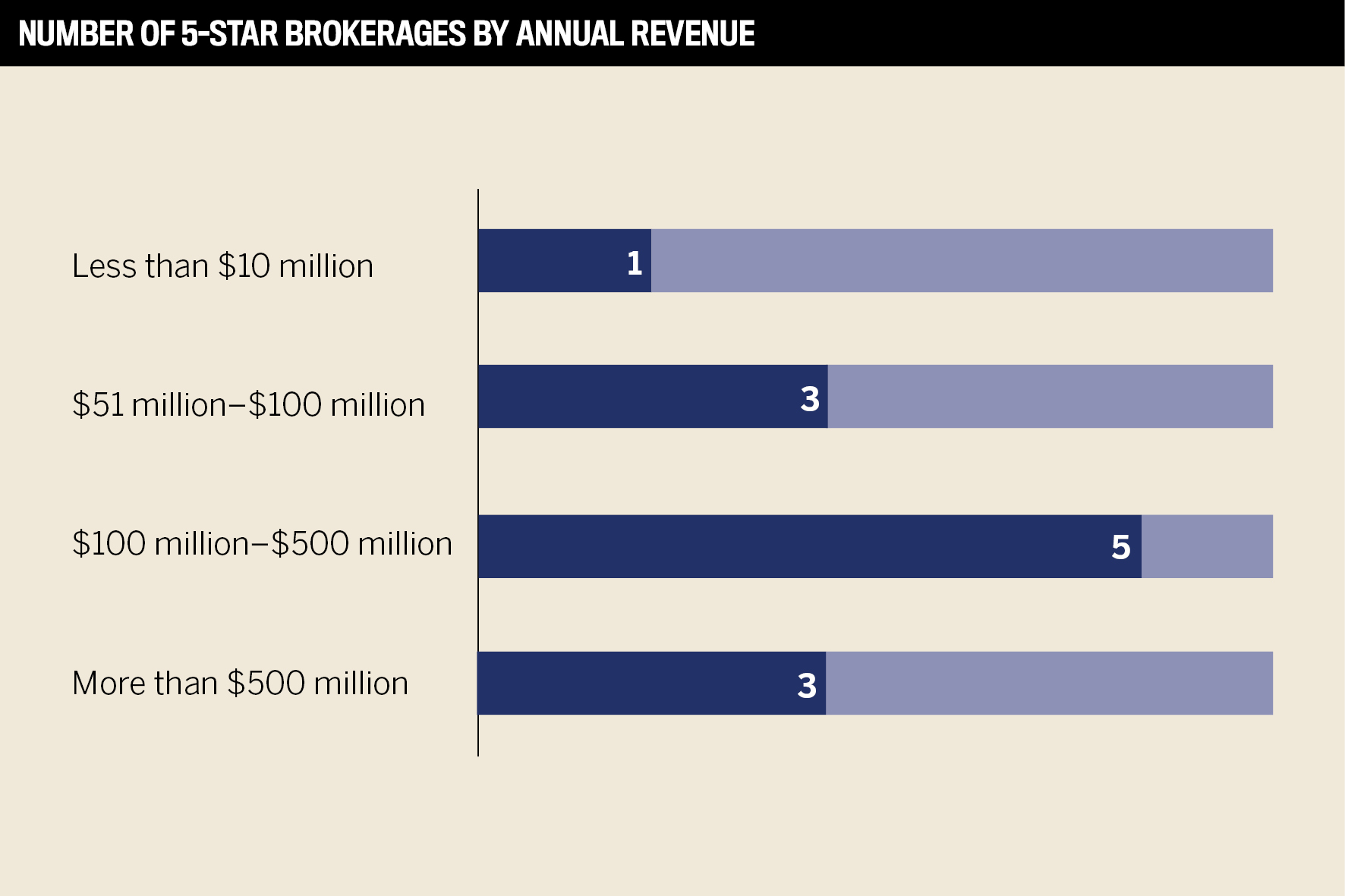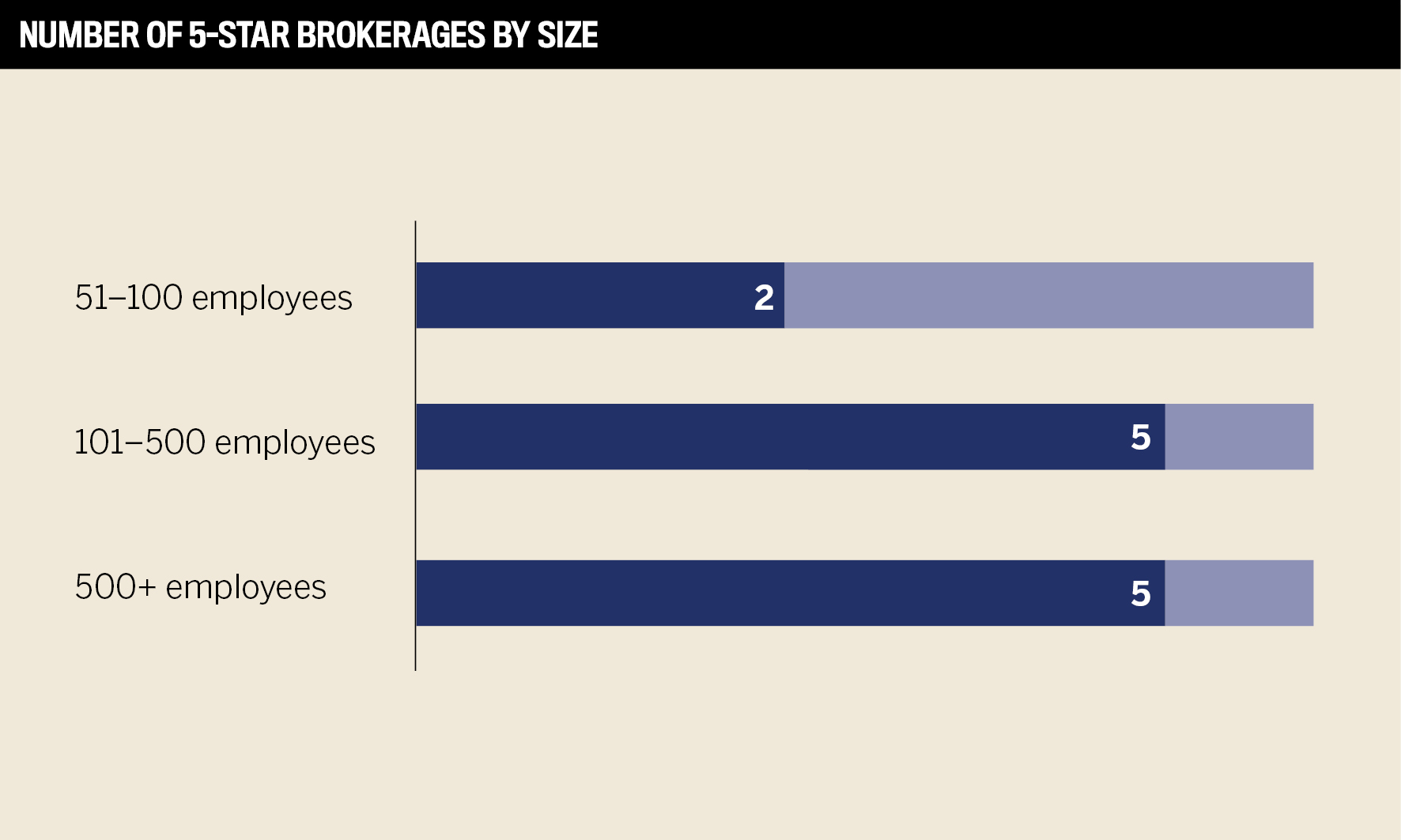

Jump to winners | Jump to methodology
In many ways, the global pandemic that arrived two years ago has led to a remarkable change in priorities among Canadians. But that hasn’t changed the reality that achieving their goals takes planning – and more than ever, financial advisors have to step in and fill the gap.
In a recent poll conducted by CIBC, three quarters of respondents said they were making financial wellness a priority, but 88% of non-retirees said they didn’t have a formal or detailed retirement plan yet, and just 43% of respondents were confident that they were saving enough for retirement. According to one recent survey by Edward Jones, almost three quarters (73%) of the population over the age of 45 have not started planning for intergenerational wealth transfer.

It’s not just clients’ financial needs that have to be met. According to the 2022 EY Global Wealth Research Report, 56% of Canadian wealth management clients said they were interested in using more digital and virtual tools moving forward. Even so, that desire has to be balanced against the need for personalization, as 42% of Canadian clients indicated that technology had reduced personalization in their relationship with their advisor firm over the last three years.
The numbers speak loud and clear: clients are looking to their advisors to provide next-level support for their needs. Fortunately, Canada’s 5-Star Brokerages are helping financial professionals answer the call.
“We like to share the pie. We want to make sure that everyone working within the firm feels that they get to participate in the success of what we achieve together”
David Sung, Nicola Wealth
Across the industry, the adoption of digital technology has been a clear tailwind that’s only accelerated over the course of the pandemic. For many independents, putting technology at the forefront of their growth strategy has provided clear benefits.
“A technology-first independent brokerage can gain an advantage over some of the incumbents and the industry stalwarts that have significant amounts of legacy technology,” says Jordy Chilcott, president at Wellington‑Altus Private Wealth.
Success is not just about having digital horsepower, however; brokerages are also recognizing the importance of culture. By fostering a spirit of collaboration and a sense of shared ownership, the most outstanding brokerages in Canada can inspire advisors to become the most ascendant versions of themselves, spurring a virtuous cycle of growth.
“We like to share the pie. We want to make sure that everyone working within the firm feels that they get to participate in the success of what we achieve together,” says David Sung, president at Nicola Wealth. “Over the past 20 years, we've made a concerted effort to grow our shareholder base, and those who aren’t shareholders with us take part in the success of the business through a very healthy profit‑sharing program.”
“Purpose matters. It always has, but it does now more than ever … If you have a collection of partners, and they can connect their goals to the organization’s, there’s nothing you can’t accomplish”
Kevin Birch, Edward Jones
At an even higher level, brokerages are recognizing the importance of looking beyond money and success within their organizations. According to the EY report, 60% of Canadians have plans to engage in philanthropy by 2024, and 73% of Canadians have sustainability goals. Net-zero pledges, commitments to diversity, equity and inclusion, and donations towards humanitarian efforts are just some examples of how firms across the industry are reinforcing the sense among advisors that they’re part of something bigger.
“One of the things we’ve learned throughout the pandemic is that purpose matters. It always has, but it does now more than ever,” says Kevin Birch, principal at Edward Jones. “At Edward Jones, each of us has defined our purpose as an exercise, and then we connected that to our firm’s purpose, which is to grow our positive impact with clients and their families in every community we serve. If you have a collection of partners, and they can connect their goals to the organization’s, there’s nothing you can’t accomplish.”
Following the disruption of the COVID-19 pandemic, countless professionals joined the Great Resignation, leaving their organizations for other companies or industries that might have been a better fit. Among brokerages in the wealth space, it’s created clear winners and losers in the war for talent.
“We have extremely seasoned professionals leading the advisory teams that we've attracted to our platform,” Chilcott says. “They’ve been through cycles of volatility, and we do expect 2022 to be very volatile. But if a client has been working with one of our advisors for quite a long time, I believe their portfolios have been properly positioned in a very balanced manner that was respecting of their risk tolerances.”
Across the wider population, a large cohort of Canadians are fast-tracking their plans for retirement, sparking an accelerated need for investment services and financial advice. In a recent Environics survey commissioned by Investment Planning Counsel, 45% of Canadians identified retirement planning as a top priority when seeking expert advice.
Winning brokerages have gotten ahead by expanding their pool of financial advisors and planners and enabling them to effectively support their clients’ objectives.
“Over the past two years, we have almost doubled in staff size. We’re now a little over 400 people in our company, including 180 people who joined our firm over the last two years,” Sung says. “We want to hire the best possible people in all areas of our company, and we're looking through a neutral lens that considers diversity as well. At our company, around 50% of the financial professionals are women.”
At Edward Jones, Birch says: “We've had a number of advisors choose to join us from other firms, and they tell us it’s because they want to provide a better client experience. Edward Jones doesn't have proprietary products or a house brand of solutions. That appeals to the folks who are coming over, because they want to have the autonomy to recommend the best solutions for their clients.”
EY’s research found that 60% of Canadian investors regard some level of digital engagement as a positive feature for wealth managers. With the continuing need for digitization, growth-seeking firms are also on the hunt for tech professionals to integrate, maintain and update technology solutions throughout the enterprise.
“I would say that compliance and risk is also a very hot area in the war for talent, given all the changes in regulatory oversight,” Chilcott adds. “Those changes are very much welcomed, and we’re adapting to all the updates while always keeping clients in mind.”

“We have extremely seasoned professionals leading the advisory teams that we’ve attracted to our platform. They’ve been through cycles of volatility, and we do expect 2022 to be very volatile”
Jordy Chilcott, Wellington-Altus Private Wealth
With uncertainty rampant across the globe, Canadians are counting more and more on advisors to help them navigate their finances. Against that backdrop, three quarters (76%) of respondents to the IPC-commissioned Environics Research survey said they counted on their advisor’s guidance to be financially successful in the future, and two thirds (65%) said an advisor would help them stay on track to achieve their investment goals.
With that in mind, it’s become more crucial than ever for brokerages to support advisors with market commentary and intelligence to inform their portfolio views.
“To support our advisors, we have our chief markets strategist Dr Jim Thorne, whose market insight pieces from last year encouraged our advisors to prepare for volatility,” Chilcott says. “We also subscribe to seven other different organizations that provide different views, which we believe helps our advisors stay as informed as possible.”
After getting market information, advisors also need investment options that work well even in challenging economic environments. To address that need, Canada’s leading brokerages provide access to alternative strategies and asset classes to help bolster clients’ portfolios against the developing risks in public markets.
At Nicola Wealth, Sung says, “we have an in-house private capital platform, which includes low-duration commercial mortgage pools in-house that work quite well in a rising interest-rate environment. We also launched a venture fund in September last year, which has been one of our strongest-performing investment options this year and has certainly helped balance out declines in public markets year-to-date.”
Of course, investment advice is only one piece of the puzzle; true wealth stewardship requires taking a personal and holistic planning approach around what truly matters. Another recent survey by Edward Jones found that three quarters (73%) of advised Canadians want to have a personal relationship with their advisor, where their life circumstances are appreciated as much as their investments. And in the study conducted by Environics Research for IPC, almost all respondents (91%) wanted to be reassured that their advisor understood their personal situation.
Edward Jones has been “very focused on increasing the resources that we're providing advisors to deepen their relationships with clients,” Birch says. “We’re also helping them with training and professional designations to grow their impact in every community that they serve. Through the past two years, we've learned the value of a deep and trusting relationship with a financial advisor who understands and helps keep them on track to achieving their goals.”
In Sung’s view, “wealth management isn't just about investment returns. It's about the ability to sit down with someone and understand what their wealth actually means to them. It’s the blood, sweat and tears they’ve shed to get to achieve their goals.”
He says “brokerages and firms have to make sure that they put in place the talent, the systems and the technology to help advisors take stewardship of that.”
To find the 5-Star Brokerages of 2022, Wealth Professional solicited applications from brokerage firms across Canada. WP invited applicants to explain how they were excelling in key areas like culture, compliance, training, and technology. To be eligible, each firm had to be a full-service brokerage with a minimum of three locations.
Winners were judged by the substance of their nominations, based on specific examples of outcomes that were achieved and the relevant data to support their claims. The WP team carefully reviewed each nomination, examining how each brokerage had made a meaningful and tangible difference in the financial services industry.